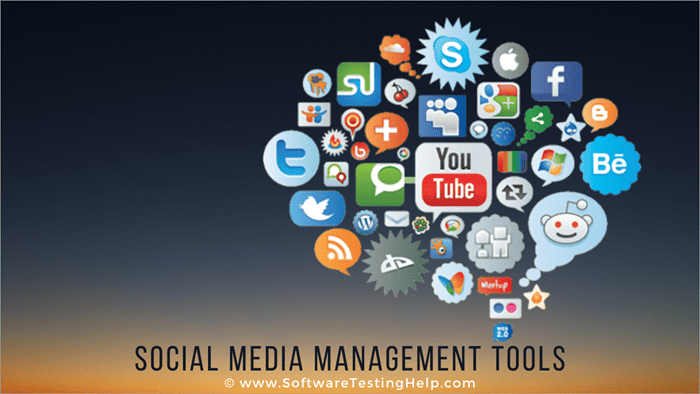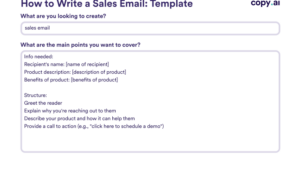With Social Media Management Tools at the forefront, get ready to dive into the world of boosting your digital footprint with the latest tools and strategies. From scheduling posts to analyzing data, this high school hip guide will show you the ropes.
Let’s break down the key features, benefits, and how to choose the right tool for your business’s social media success.
Overview of Social Media Management Tools

Social media management tools are platforms or software that help businesses and individuals manage, schedule, analyze, and optimize their social media accounts. These tools streamline the process of creating and posting content, engaging with followers, and measuring the performance of social media campaigns.
Using social media management tools is crucial for businesses to maintain a strong online presence, increase brand awareness, and drive engagement with their target audience. These tools enable businesses to plan and schedule posts in advance, monitor conversations and mentions, analyze performance metrics, and track the effectiveness of their social media marketing efforts.
Popular Social Media Management Tools
- Hootsuite: A popular tool for managing multiple social media accounts, scheduling posts, and analyzing social media performance.
- Buffer: Known for its easy-to-use interface and scheduling capabilities across various social media platforms.
- Sprout Social: Offers a comprehensive suite of social media management tools, including analytics, engagement, and publishing features.
- Later: Primarily focused on visual content scheduling for platforms like Instagram and Pinterest, with a user-friendly interface.
- SocialBee: Provides a variety of tools for content curation, scheduling, and audience engagement across different social media channels.
Features to Look for in Social Media Management Tools

When choosing a social media management tool, it’s important to consider the key features that can help streamline your social media activities and improve your overall strategy.
Scheduling Posts
One of the most important features to look for in a social media management tool is the ability to schedule posts in advance. This allows you to plan out your content calendar, maintain a consistent posting schedule, and reach your audience at optimal times without having to manually post each time.
Analytics
Another essential feature is analytics, which provides valuable insights into your social media performance. By tracking metrics such as engagement, reach, and follower growth, you can measure the effectiveness of your campaigns, identify trends, and make data-driven decisions to improve your strategy.
Social Listening
Social listening is a powerful tool that allows you to monitor conversations about your brand, competitors, and industry across social media platforms. By staying informed about what people are saying, you can respond to feedback, address customer concerns, and identify opportunities to engage with your audience in a meaningful way.
Team Collaboration
For businesses with multiple team members managing social media accounts, team collaboration features are crucial. These tools enable team members to work together seamlessly, assign tasks, review content, and provide feedback in a centralized platform, ensuring consistent messaging and efficient workflow.
By incorporating these key features into your social media management tools, businesses can enhance their online presence, engage with their audience effectively, and ultimately drive results that align with their marketing goals.
Benefits of Using Social Media Management Tools
Using social media management tools can provide numerous benefits for businesses looking to enhance their online presence and engagement with their audience. These tools offer a wide range of features that can streamline the process of creating, scheduling, monitoring, and analyzing social media content.
Improved Efficiency and Effectiveness
- Automated scheduling: Social media management tools allow businesses to schedule posts in advance, ensuring a consistent and timely presence on various platforms.
- Centralized management: With these tools, businesses can manage all their social media accounts from a single dashboard, saving time and effort.
- Analytics and insights: Tools provide valuable data on engagement, follower growth, and post performance, helping businesses make informed decisions to optimize their social media strategy.
Success Stories, Social Media Management Tools
“Company X saw a 30% increase in website traffic after implementing a social media management tool to schedule and track their posts across platforms.”
“Small business Y doubled their social media engagement within a month of using a management tool to analyze their audience and post performance.”
How to Choose the Right Social Media Management Tool
When selecting a social media management tool for your business, it’s crucial to consider various factors to ensure you choose the right one that fits your needs and goals. From budget constraints to specific features required, here is a step-by-step guide to help you make an informed decision.
Assess Your Business Needs
- Identify your social media goals and objectives to understand the tools you need.
- Consider the number of platforms you are active on and the volume of content you manage.
- Assess your team’s size and capabilities to determine the level of complexity needed in the tool.
Set a Realistic Budget
- Define a budget range that aligns with the features and functionalities you require.
- Look for tools that offer flexible pricing plans to scale as your business grows.
- Avoid overspending on tools with unnecessary features that you won’t use.
Evaluate Ease of Use and Scalability
- Choose a tool that is intuitive and easy to navigate for you and your team.
- Consider the learning curve and training required to onboard new users.
- Ensure the tool can scale with your business and accommodate future growth.
Research and Compare Different Tools
- Read reviews and testimonials from other businesses using the tools you are considering.
- Request demos or trials to test the features and functionalities firsthand.
- Compare pricing, support options, and customer service to make an informed decision.





